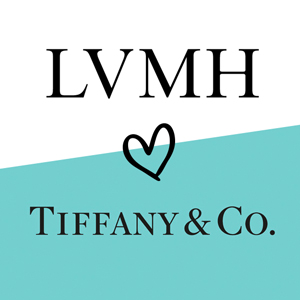
LVMH will break bread with Tiffany, though the famed retailer will hardly go lightly.
In what some are describing as the biggest deal ever in the luxury goods segment, LVMH will pay $16.2 billion for Tiffany & Co., in a deal that ends the retailer’s 32 years as an independent public company.
The sale was approved by both company’s boards yesterday, said a statement from LVMH.
This is the priciest acquisition in LVMH’s history, more than doubling the $7 billion it paid for Christian Dior in 2017.
The final price comes out to $135 a share. That is a little shy of the $139 benchmark Tiffany’s board had reportedly sought, given its stock reached that level last year.
But it tops the luxury conglomerate’s original late-October bid of $120 a share and its reported follow-up bid of $130—not to mention the $98 Tiffany’s stock was trading at prior to all this becoming public.
The company’s shares closed at $125 on Friday, before it was revealed over the weekend the two sides had reached a deal. At press time, it was trading at $133.
According to the Financial Times, “after LVMH’s interest became public, Tiffany’s advisers received a number of inquiries from rival luxury goods groups. But none of the alternative approaches were seen as compelling.”
An LVMH presentation said that the acquisition will make it a player in fine jewelry, increasing the size of its watches and jewelry division from 9% of sales to 16%.
It said that LVMH plans to leverage Tiffany’s heritage and brand awareness, iconic collections, and commitment to sustainable sourcing and traceable provenance, and will “accelerate [its] ongoing strategy as part of LVMH.”
Some thought it noteworthy that LVMH repeatedly called out Tiffany’s commitment to sustainability, which in recent years has come to define the brand.
According to The Wall Street Journal, LVMH executives view “Tiffany as a ‘sleeping beauty,’ a brand with great promise, but one that sat out the recent uptick in the jewelry market.”
LVMH sees Tiffany’s “wide range of prices as a good way to attract younger shoppers,” the company added.
LVMH chairman and chief executive officer Bernard Arnault told The New York Times that being part of a conglomerate could free Tiffany to “have a different state of mind.
“When you are an independent brand listed on the American stock exchange, your goal has to be the next quarter profit,” he said.
While LVMH is also a public company, it does not break out individual brands’ results.
Arnault added that Tiffany is “strong in the U.S. and Japan, but weak in Europe and not up to growth in China. There we can help a lot, find the best locations.”
Arnault told Reuters that Tiffany is “an American icon, which is now going to become a little French too.”
LVMH owns two other jewelers—Bulgari, which it acquired in 2011, and Fred—as well as three watch brands.
The deal still has to be approved by Tiffany’s shareholders. It is expected to close by the middle of 2020.
Arnault said in a statement, “We have an immense respect and admiration for Tiffany and intend to develop this jewel with the same dedication and commitment that we have applied to each and every one of our maisons. We will be proud to have Tiffany sit alongside our iconic brands and look forward to ensuring that Tiffany continues to thrive for centuries to come.”
Roger N. Farah, chairman of the Tiffany board of directors, said in the same statement, “Following a strategic review that included a thoughtful internal process and expert external advice, the board has concluded that this transaction with LVMH provides an exciting path forward with a group that appreciates and will invest in Tiffany’s unique assets and strong human capital, while delivering a compelling price with value certainty to our shareholders.”
Added Alessandro Bogliolo, Tiffany CEO: “As part of the LVMH group, Tiffany will reach new heights, capitalizing on its remarkable internal expertise, unparalleled craftsmanship, and strong cultural values.”
Tiffany has 321 stores in more than 20 countries. The brand has had an eclectic lineup of owners in its 182-year history, including General Shoe Co. and Avon Products. For years it had long been rumored to be takeover target, but past executives have generally said it should remain independent.
Follow JCK on Instagram: @jckmagazineFollow JCK on Twitter: @jckmagazine
Follow JCK on Facebook: @jckmagazine